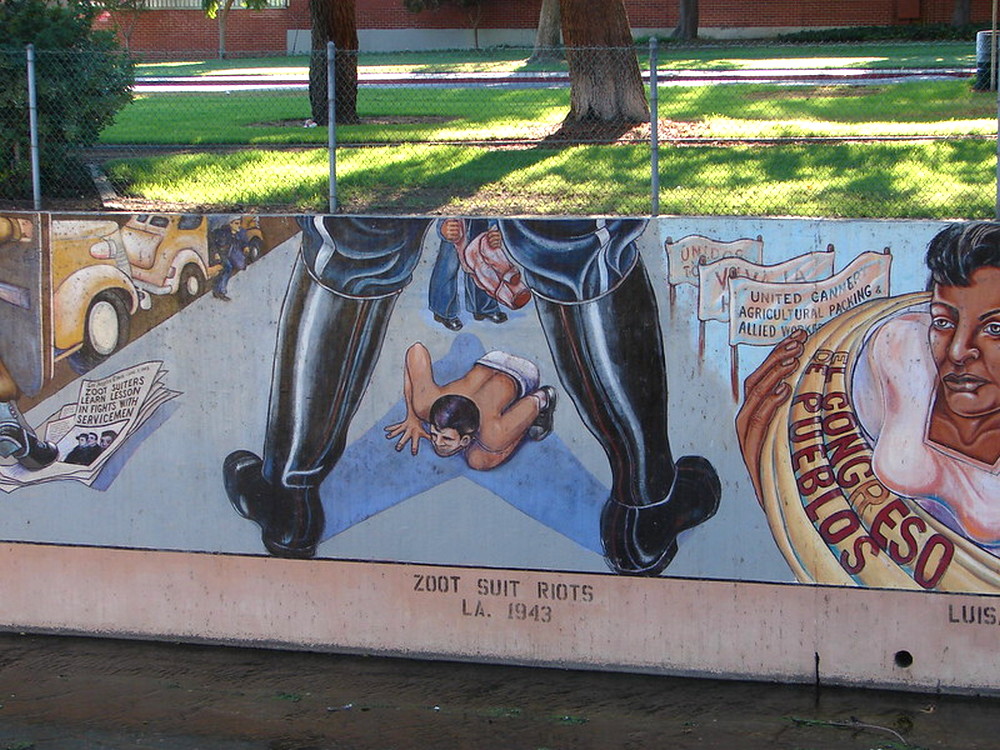Today the Los Angeles County Board of Supervisors formally condemned one of the "most shameful moments'' in local and U.S. history: the series of racial conflicts in that occurred in Downtown, Watts, East Los Angeles, and other L.A. neighborhoods in June of 1943 known as "The Zoot Suit Riots.
A motion brought by Supervisor Hilda Solis was unanimously approved to denounce "the devastation of the Zoot Suit Riots, recognize this as a dark chapter in Los Angeles County's history and recommit to fighting against racial discrimination.''
Solis recounted the uprising's beginnings, when "mobs of U.S. servicemen, law enforcement officers, and civilians ambushed young Mexican Americans, African American, and Filipino American men'' across the county.
The attacks became focused on people wearing "zoot suits,'' which had become popular among young men of color and made them targets of racism and discrimination, she said, bringing to mind recent demonizations of garments like hooded sweatshirts.
"This was especially true among Latino youths in California, who were
known as 'pachucos' for wearing zoot soots,'' Solis said. "The white majority at
the time often viewed them as gang members and delinquents.''
Solis said the zoot suiters were falsely blamed for the 1942 death of Jose Gallardo Diaz near a swimming hole known as the "Sleepy Lagoon."
"These arrests and convictions were seen as shams by the Mexican-American community, with the police exclusively targeting young Brown men as suspects,'' according to Solis' motion.
"On May 31, 1943, a group of servicemen and a group of Mexican
American youth wearing zoot suits scuffled in downtown Los Angeles. Three days later, on June 3, 1943, another confrontation ensued, only this time servicemen were joined by police on orders to `clean up' downtown Los Angeles. The next day, a group of over 200 Marines and sailors took a caravan of taxis into East Los Angeles and began to beat any young man wearing a zoot suit, burning their belongings in the process.''
The riots died down later that year when U.S. servicemen were banned from the area, and the City Council backed a resolution, never codified as a law, that barred zoot suits in the city.
Supervisor Holly Mitchell said the riots were indicative of a pattern of groups of people being targeted for their "clothes, culture and identity.''
"We've seen that repeated over and over in our history, where groups who attempt to express our cultural pride and identity through clothes, music, style, hair ... whatever the case may be, how it's frowned upon and quite frankly feared,'' she said. "And the effort to erase and eliminate never seems
to be successful."
Mitchell noted that recognizing the Zoot Suit Riots is "particularly important now,'' saying there are some politicians who are "attempting to rewrite American history."
Supervisor Janice Hahn added, "Until we understand and come to grips
with our past, even our shameful past, we are in jeopardy of repeating it.''
Reporting by City News Service






